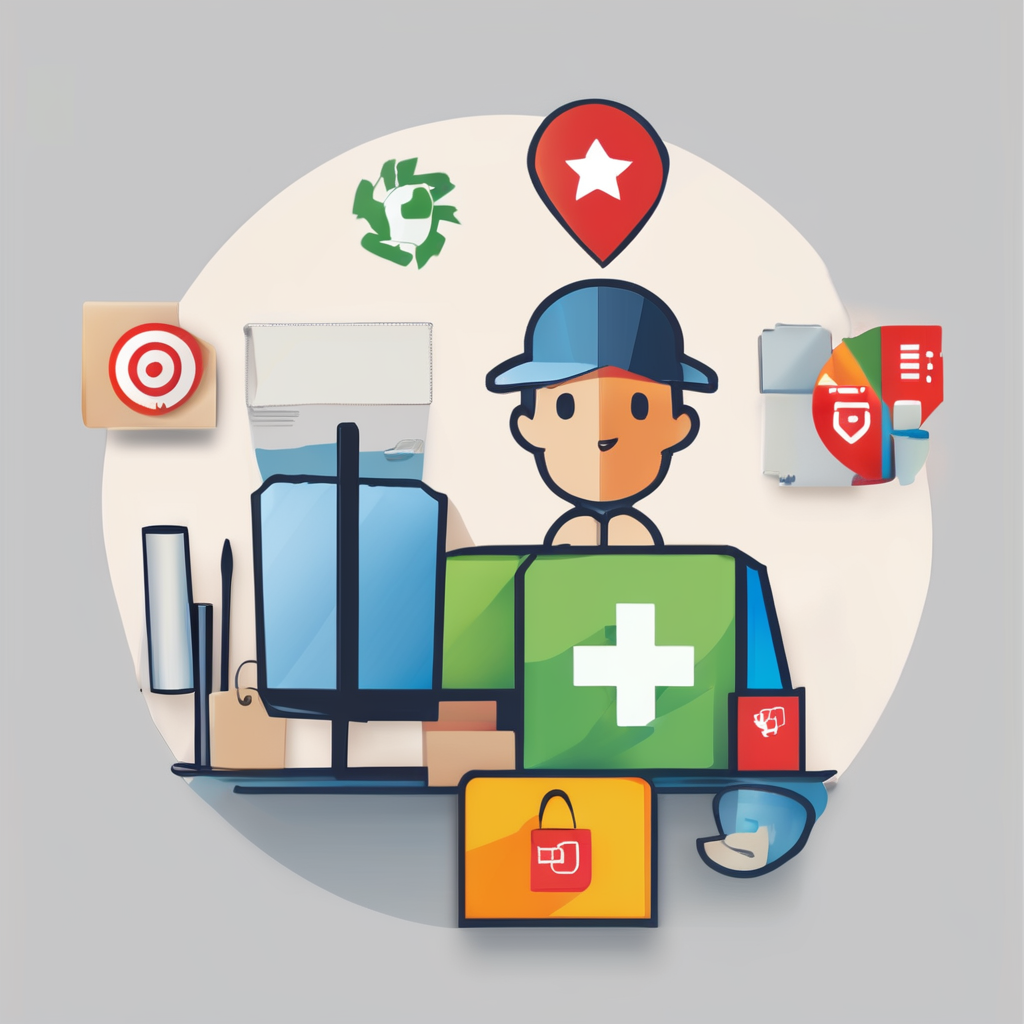Generating quality real estate leads demands more than traditional tactics. Embracing targeted strategies, leveraging advanced CRM tools, and nurturing relationships through personalized communication transforms your sales pipeline. Combining digital innovation with local engagement creates a sustainable flow of potential clients ready to convert. Discover how to tailor your approach, maximize resources, and elevate your lead generation efforts starting today.
Effective Real Estate Lead Generation Strategies in 2025
Lead generation for estate agents remains an essential component of growing a successful real estate business. The most effective strategies focus on a diversified, multi-channel approach that combines organic and paid methods, tailored specifically to the agent’s target market and capabilities.
This might interest you : How New UK Insulation Standards Transform Older Homes: Essential Insights for Homeowners
In today’s competitive landscape, establishing a strong online presence is paramount. Conversion-optimized websites equipped with features like instant valuations and dedicated landing pages are fundamental tools. They serve to attract interested prospects and facilitate lead capture efficiently.
Social media platforms such as Facebook, Instagram, and LinkedIn continue to be vital for connecting with potential clients. Engaging content—market insights, success stories, and community highlights—builds credibility and fosters trust. Implementing targeted social media ads complements organic efforts, allowing precise demographic targeting and real-time performance tracking.
Also to discover : Innovative Approaches to Boost Energy Efficiency in Manchester’s High-Rise Apartments
Email marketing remains a core tactic, especially when supported by automation tools. Segmenting contacts by their readiness to buy or sell and delivering personalized content ensures sustained engagement. Automated CRM systems can handle this process, nurturing leads through timely follow-ups and relevant messaging.
Local connections shouldn’t be overlooked. Attending community events, open houses, and networking with local businesses enhances visibility and encourages word-of-mouth referrals. Strategic partnerships with mortgage lenders, insurance agents, or builders can also bring mutual referrals and expand reach organically.
Traditional advertising channels—billboards, direct mail, and local publications—still hold value when integrated with digital strategies. Using QR codes on physical ads that link directly to lead capture forms combines the best of both worlds.
Furthermore, reputation building through public relations helps position agents as trusted local experts. Contributing to local media and online publications increases trust and credibility, leading to more organic inquiries and high-quality leads.
Building a robust lead nurturing system through marketing automation and consistent follow-up remains crucial in converting prospects into clients. Advanced tools and strategies, such as predictive analytics, help identify high-quality leads more efficiently by analyzing behaviors, engagement levels, and financial indicators.
Agents should also explore innovative avenues such as leveraging AI-powered marketing tools like Luxury Presence, which offer features including automated content creation, chatbots, and campaign optimization. These tools drastically reduce time spent on manual tasks while enhancing lead quality and engagement.
Overall, adopting a strategic, diversified plan aligned with individual markets and agent strengths enhances the predictability and scalability of lead flow. It’s also advantageous to seek tailored coaching or guidance to refine these efforts continually.
For those interested in exploring more detailed tools and strategies, you can explore the lead generation page: lead generation for estate agents. This resource provides insights into how combining advanced software solutions with traditional methods can elevate your lead capture game in 2025.
Core Principles of Successful Real Estate Lead Generation
A strong real estate pipeline relies on effective real estate prospecting methods and a sophisticated mix of strategies. Precision is key: Real estate lead capture techniques demand a focus on identifying, qualifying, and engaging high-quality prospects. To maximize your real estate pipeline building strategies, prioritizing quality over sheer quantity leads to better conversion rates and a more sustainable workflow—a critical insight for both seasoned and emerging agents.
Embracing Multi-Channel Approaches
Digital marketing for real estate professionals now forms the backbone of optimal lead acquisition. Traditional approaches such as direct mail and community events retain value, but integrating these with online real estate lead capture techniques—like targeted advertising for property buyers and robust SEO for attracting house hunters—amplifies reach. Building recognition through social media tactics for real estate leads, for example, leverages Facebook or Instagram marketing for realtors in tandem with content marketing for real estate leads. Automated systems support this momentum; lead management for real estate agents is made seamless through CRM tools that track interactions and push timely communications, ensuring no opportunity slips through the cracks.
Nurturing and Conversion: Sustained Relationships
The journey doesn’t end when a real estate prospect becomes a lead. Multi-channel nurturing is vital: Email campaigns for real estate leads allow for precise segmentation and regular updates that remain sensitive to each contact’s readiness. Nurturing real estate leads through consistent follow-ups and providing value via real estate blogs or virtual tours to attract homebuyers builds long-term trust—helping agents convert more effectively and improve their lead conversion rate. Automated follow-up tools for real estate leads and chatbots usage to capture real estate leads further standardize touchpoints, especially when supported by real estate customer relationship management integrations.
Data-Driven Optimization
Tracking and optimizing each step ensures continuous improvement in lead generation results. Analytics to optimize lead performance guide agents in refining real estate lead qualification criteria, allowing a sharper focus on high-potential leads. Tools that measure the effectiveness of online property buyer leads campaigns, or facilitate A/B testing in PPC campaigns for property leads, help refine outreach. Effective lead tracking systems for real estate feed these real-time insights back into the funnel, enabling informed adjustments and further reinforcing pipeline reliability.
Leveraging Automation and AI
Adopting AI tools in lead generation streamlines repetitive tasks, ensuring agents devote more energy to personal connections. Automated nurturing, retargeting ads for homebuyers, and predictive analytics minimize manual work while maximizing conversion opportunities. This results in a predictable, scalable pipeline grounded in best CRM tools for real estate agents and supported by strategies such as optimizing real estate landing pages and lead segmentation for real estate marketing.
Through these core principles—diversifying sources, focusing on lead quality, nurturing relationships, and leveraging intelligent automation—the foundation is set for reliable real estate lead generation success.
Digital Tools and Platforms for Lead Capture and Nurturing
CRM Systems and Automation
Precision in real estate lead capture techniques begins with adopting robust CRM systems. The best CRM tools for real estate agents are purpose-built for lead management, prioritizing ease of integration and automation. Using CRM automation for real estate agents allows for seamless collection and storage of online property buyer leads, while automated follow-up tools for real estate leads ensure every prospect is engaged at the right time. Effective lead segmentation for real estate marketing relies on AI and analytics, scoring new contacts according to real estate lead qualification criteria so that the sales team can focus on converting real estate prospects most likely to transact. This guided segmentation streamlines nurturing real estate leads and helps maintain an organized pipeline for ongoing conversion.
Website Optimization and Landing Pages
Optimizing real estate landing pages is fundamental to building an email list for property buyers and attracting targeted traffic. High-performing landing page optimization tips for realtors include clear calls to action, instant property valuations, lead magnets, and engaging real estate follow-up email templates. Features like instant valuations make it easier to generate online property buyer leads, while social proof in real estate lead generation (such as recent transactions) builds trust that encourages users to complete forms. Leveraging Google My Business optimization for real estate leads raises local search visibility, drawing in more motivated prospects. SEO for attracting house hunters and analytics to optimize lead performance keep these pages at the top of search results, ensuring a reliable inflow of organic and local lead generation for real estate.
Paid Advertising and Social Media Tactics
Paid advertising serves as a cornerstone for data-driven lead targeting in real estate. Using Facebook ads to generate real estate leads, along with targeted Instagram marketing for realtors and Google Ads, allows for real-time performance measurement and rapid scaling. Retargeting ads for homebuyers and geo-targeted ads for real estate lead generation engage users who have already shown interest, driving up conversion rates. Automated ad management with AI-powered tools supports better ROI by continuously refining campaigns based on lead conversion rate improvement data. Social media tactics for real estate leads, including consistent content marketing for real estate leads and chatbot usage to capture real estate leads, ensure a constant stream of inbound prospects. Through coordinated multi-channel lead nurturing, real estate professionals can efficiently build relationships, segment audiences, and move new contacts through their online marketing funnels for property sales.
Offline and Community-Based Lead Generation Approaches
Hosting Effective Open Houses and Community Events
To generate valuable online property buyer leads and strengthen community engagement for lead building, real estate professionals focus on open houses and local events. Using proven real estate lead capture techniques like digital sign-in forms or QR codes at events helps agents easily gather contact details and start nurturing real estate leads. Set up interactive property demonstrations and offer informational sessions to attract targeted visitors—prioritize follow-up using real estate follow-up email templates within days to maximize lead conversion tips for realtors.
Collaboration with local sponsors or hosting charity drives not only increases foot traffic but also boosts brand reputation. These approaches augment real estate pipeline building strategies and create loyal databases for future prospecting through real estate forums, social proof in real estate lead generation, and seasonal campaigns. Intentionally segment and nurture each attendee using best CRM tools for real estate agents, ensuring consistent communication that leads to higher conversions.
Strategic Partnerships and Referral Networks
Agents consistently expand their reach by collaborating with mortgage brokers, local builders, and legal professionals, reinforcing effective real estate prospecting methods and building trust to generate leads through partnership. Leveraging real estate referral generation strategies gains agents high-converting sources; referrals are statistically the most reliable means of converting real estate prospects and should receive priority follow-up in nurturing platforms.
To further establish expertise, agents share insights with local media outlets, providing educational market analysis or contributing editorials. By building authority to multiply lead trust, agents support both inbound lead generation for real estate and broader real estate pipeline building strategies. Use integrating CRM with lead sources to systematize incoming recommendations while tracking referral conversions.
Traditional Advertising Methods
Traditional ads—such as billboards, bus signage, and print inserts—remain effective when optimized for local lead generation for real estate. Integrate QR codes or short URLs as interactive tools to capture leads, leading offline audiences into digital marketing for real estate professionals and online marketing funnels for property sales. These methods, paired with geo-targeted ads for real estate lead generation and compelling call to action examples for real estate sites, enable seamless handoff from offline interaction to data-driven lead nurturing.
Hybrid campaigns combining direct mail campaigns for property buyers and online retargeting ads for homebuyers broaden exposure. Consistently measure and refine your approach with analytics to optimize lead performance. By gathering feedback and tracking lead source effectiveness, you refine strategies and uncover lead conversion rate improvement opportunities to ensure ongoing campaign relevance and ROI.
Blending community-first initiatives, referral networks, and innovative traditional marketing is essential for lead management for real estate agents—creating robust pipelines and scalable, high-quality results.
Innovative Technologies and AI in Lead Generation
AI Chatbots and Automated Engagement
AI chatbots are transforming real estate lead capture techniques by instantly qualifying and filtering prospects before any human intervention. When implemented on landing pages or messaging platforms, these intelligent bots use tailored scripts to assess buyer or seller intent, set appointment times, and answer common questions. They drive higher response rates by guiding online property buyer leads through personalized chat journeys. Real-time responses not only keep leads engaged but also ensure follow-up speed, a major factor in converting real estate prospects. Using automated engagement, agents can maintain consistent communication—which is essential for nurturing real estate leads—without being tied to their devices every minute. Supported by digital marketing for real estate professionals, these AI tools free up valuable time and ensure prospects are never left waiting, significantly aiding lead conversion tips for realtors.
Predictive Analytics and High-Quality Lead Scoring
Machine learning and predictive analytics take effective real estate prospecting methods to the next level. By evaluating browsing behavior, email opens, and engagement patterns, these systems deliver precise real estate lead qualification criteria. Agents can prioritize leads showing strong buying signals and automate timely follow-up using predictive models, sharpening their real estate pipeline building strategies. Lead scoring real estate leads, powered by these insights, means agents focus their energy on the prospects most likely to convert, optimizing both time and resources. Data-driven lead targeting in real estate continuously refines itself as more interaction data is collected, resulting in continuously improved conversion outcomes and more informed lead management for real estate agents.
Content Creation and Organic Social Media with AI Assistance
Creating valuable, consistent content across multiple platforms is central to building trust and establishing authority. AI tools can now generate blog posts and social media content, making it easier to maintain a robust online presence without manual effort. Effective content marketing for real estate leads taps into SEO for attracting house hunters while also supporting lead generation using real estate blogs and video marketing for real estate lead capture. Sharing regular market updates, community stories, and practical tips highlights agents as informed local experts and fuels social media tactics for real estate leads. Automated content creation helps maintain relevance, ensures better engagement, and increases top-of-mind awareness—vital for consistent lead nurturing and long-term relationship development.
By combining these AI-powered solutions with best CRM tools for real estate agents and automated follow-up tools for real estate leads, professionals can centralize every stage of the customer journey. Integrating CRM with lead sources ensures all generated and nurtured leads are tracked and managed effectively, providing a seamless pathway from initial capture to final conversion. This modern, tech-driven approach empowers agents to build stronger pipelines, increase efficiency, and maximize lead conversion rate improvement in fiercely competitive markets.
Continuous Lead Nurturing and Conversion Techniques
Precision in converting real estate prospects hinges on a blend of automated, personalized follow-up sequences and thoughtful lead management for real estate agents. Start by segmenting each lead according to their readiness to transact, using best CRM tools for real estate agents or purpose-built lead tracking systems for real estate. Nurturing real estate leads with the right cadence—such as tailored real estate follow-up email templates or automated follow-up tools for real estate leads—boosts engagement and conversion.
Efficient real estate pipeline building strategies rely on effective real estate prospecting methods like automation-driven drip campaigns. These can combine targeted advertising for property buyers, content marketing for real estate leads, and the use of virtual tours to attract homebuyers. Real estate customer relationship management tools can automate this outreach, ensuring prospects receive email campaigns for real estate leads timed to nurture intent without overwhelming them.
Practice matters when it comes to handling lead objections. Using proven cold calling scripts for realtors or objection-handling flows integrated into chatbot usage to capture real estate leads ensures every interaction supports the ultimate aim: lead conversion tips for realtors that deliver results. Incorporate video marketing for real estate lead capture within your email and SMS follow-up, a proven technique to increase open and reply rates.
Measuring and Optimizing Lead Performance
Tracking source effectiveness through analytics is central to data-driven lead targeting in real estate. Analytics to optimize lead performance illuminates which online property buyer leads result in pipeline progress and which stagnate. With a performance dashboard, agents can monitor inbound lead generation for real estate alongside outbound lead generation techniques, adjusting campaigns according to clear KPIs.
ROI evaluation is key. Measuring ROI on lead generation spend helps refine campaign choices, ensuring resources align with strategies to attract buyer clients that yield genuine returns. This often means analyzing digital marketing for real estate professionals side by side with more traditional, local lead generation for real estate, such as direct mail or open houses, to find the strongest source/response combinations.
Adapt tactics routinely. Adjusting lead tactics for market changes—perhaps by implementing fresh content ideas for real estate lead magnets or shifting PPC campaigns for property leads—keeps the pipeline robust. Regular lead scoring real estate leads and working with lead conversion rate improvement metrics makes it easier to maximize each opportunity’s value.
Building a Customer-Centric Brand
Trust is non-negotiable in generating online property buyer leads. Building authority to multiply lead trust can start with leveraging testimonials, generating seller leads online with documented results, or employing social proof in real estate lead generation. Encourage happy clients to participate in real estate lead generation case studies, which can provide measurable examples to future prospects.
Compelling lead magnets and educational content form the backbone of successful inbound lead generation for real estate. Examples include mini-guides, video tours, webinars for realtors, and blog-driven lead generation using real estate blogs. The goal is to position yourself as the first resource for any buyer or seller question.
Finally, consistent multi-channel communication amplifies results. Technology now enables multi-channel lead nurturing, combining social media tactics for real estate leads (like Instagram marketing for realtors or LinkedIn lead strategies for real estate agents) with targeted emails, video messages, and even SMS updates. Integration between CRM automation for real estate agents and these outreach methods means no real estate prospect falls through the cracks—ensuring better relationship-building and, ultimately, higher conversion rates.
Integrating Advanced Marketing Resources and Service Providers
Using real estate lead capture techniques with platforms such as Estate Track and Luxury Presence enables agencies to streamline how they collect, manage, and qualify online property buyer leads. Key offerings—like conversion-optimized websites and instant valuations—prompt potential clients to share information. Automated AI-driven content, including weekly blogs and branded outbound emails, supports ongoing lead nurturing for real estate leads, ensuring valuable prospects remain engaged and move efficiently through marketing funnels.
Automated nurturing features and portal viewing qualifiers improve converting real estate prospects by focusing on the most promising inquiries. Social media tactics for real estate leads, from scheduled posts to automated responses and retargeting, rapidly turn casual followers into qualified leads. Video marketing for real estate lead capture and virtual tours to attract homebuyers boost interest and offer unique ways to nurture leads. Chatbot usage to capture real estate leads, as well as lead scoring via AI, ensures only high-quality prospects reach agents for real conversations.
Establishing inbound lead generation for real estate combines blog content, SEO for attracting house hunters, and landing page optimization tips for realtors. Customizable landing pages, robust CRMs, and branded newsletters inside digital marketing for real estate professionals support multi-channel lead nurturing. These coordinated resources are crucial for real estate pipeline building strategies, providing better visibility throughout the customer lifecycle via analytics to optimize lead performance and lead tracking systems for real estate.
Choosing the Right Technology Stack
To maximize pipeline management and ROI, choosing the right mix of free vs paid lead sources in real estate is fundamental. Agencies balance organic methods—like optimizing Google My Business for real estate leads, effective real estate prospecting methods, and leveraging local lead generation for real estate—with targeted advertising for property buyers such as PPC campaigns for property leads and Facebook or Instagram marketing for realtors.
Integrations with best CRM tools for real estate agents permit smooth synchronization of prospect data, while API-based email campaigns for real estate leads and call tracking for lead analysis in real estate support deep insights into lead qualification criteria and behavior. Segmenting the technology stack for specific audiences—lead generation for luxury real estate, lead generation for commercial real estate, or first-time homebuyers—means each audience receives content and outreach tailored to their needs, improving overall lead conversion rate improvement.
Pricing and Incentives for New Users
Adopting advanced marketing resources is easier when platforms provide clear incentives. Many industry leaders promote free trials and introductory discounts, as Estate Track does, lowering barriers for real estate professionals ready to explore new lead generation software and tools. These offers, combined with scalable features, encourage sustained use and allow agents to assess automated follow-up tools for real estate leads and digital marketing funnel strategies for property sales before committing to long-term investments.
Ongoing support, including training real estate agents on lead conversion and personalized coaching in lead management for real estate agents, enhances knowledge retention and practical skills. This approach ensures teams continuously optimize their strategies—whether refining lead database management tips, outbound lead generation techniques, or adopting scheduling and appointment setting for leads. As the market evolves, such adaptive education leads to increased efficiency and consistent, repeatable success rates in capturing and converting high-quality real estate leads.
Transform Your Real Estate Lead Generation Efforts Today
Maximizing Online Property Buyer Leads
Precision in real estate lead capture techniques requires using instant valuation tools and optimized landing pages to convert visitors promptly. These online property buyer leads are the backbone of any scalable real estate pipeline. Leveraging digital marketing for real estate professionals enhances both reach and response, especially when landing pages guide prospects directly to lead forms. Performance dashboards and lead tracking systems for real estate agents make it possible to assess channel effectiveness, ensuring resources are allocated to the best lead sources for higher conversion.
Building & Managing a Real Estate Pipeline
A modern approach to real estate pipeline building strategies involves integrating CRM automation for real estate agents. By connecting lead management for real estate agents with best CRM tools for real estate agents, every inquiry—from chatbots on social media to form submissions on your site—feeds into an organized lead database. Advanced features like lead segmentation for real estate marketing and behavioral targeting for property leads refine how you deliver relevant content and follow-up.
Nurturing Real Estate Leads for Better Conversion
Effective nurturing real estate leads means multi-channel engagement: automated email campaigns for real estate leads, branded communications, and timely follow-up messages. Nurturing efforts accelerate growth by providing tailored value—delivering blog content, market updates, and targeted advertising for property buyers to encourage deeper interaction. Lead conversion tips for realtors focus on the timing and personalization of touchpoints, increasing the chance prospects move through each stage of your real estate lead lifecycle.
Social Media Tactics and Digital Marketing Outreach
Consistent social media tactics for real estate leads—especially through Instagram and Facebook—help build authority and trust with followers. Automated posting and video marketing for real estate lead capture drive attention and traffic to optimized real estate landing pages; these digital touchpoints serve as high-conversion portals for online property buyer leads. Meanwhile, real estate customer relationship management ensures that each interaction builds toward a productive agent-client relationship.
Data-Driven and Automated Solutions
Analytics to optimize lead performance empower agents to track the ROI of campaigns and optimize Google My Business for real estate leads. Automated nurturing and follow-up tools for real estate leads use data-driven lead targeting in real estate, so agents can focus on the hottest opportunities while AI and automation handle repetitive tasks. Combining automated lead scoring real estate leads with smart content marketing for real estate leads delivers measurable, predictable growth that can be scaled or refined as your market evolves.
Building Authority and Trust
Building an online presence goes beyond one-time tactics. Storytelling techniques for lead engagement, informative blog posts, and real estate lead generation case studies establish agents as trusted advisors. Consistency in every channel—from targeted PPC campaigns for property leads to retargeting ads for homebuyers—reinforces both visibility and expertise. Each success amplifies social proof in real estate lead generation, transforming a single experience into many referrals.
Local & Community-Focused Lead Generation
Local lead generation for real estate blends digital and community engagement for lead building. Hosting open houses, partnering with mortgage brokers for leads, and participating in neighborhood events cultivate strong real estate referral generation strategies. Strategies to attract buyer clients often hinge on neighborhood knowledge and direct involvement, which, when combined with online campaigns, drastically increase qualified seller and buyer inquiries.
Continual Optimization
Sustained lead generation for real estate demands ongoing adjustment—measuring ROI on lead generation spend, testing new funnel design for real estate conversions, and adapting to changing buyer personas for targeted lead efforts. Trained agents using analytics, lead magnet ideas for real estate professionals, and up-to-date real estate follow-up email templates consistently outperform competitors limited by static approaches.
Innovation, strategic planning, and persistent lead management shape the most successful real estate lead generation programs—yielding a consistent pipeline of high-quality, engaged clients, ready to transact now or in the future.




